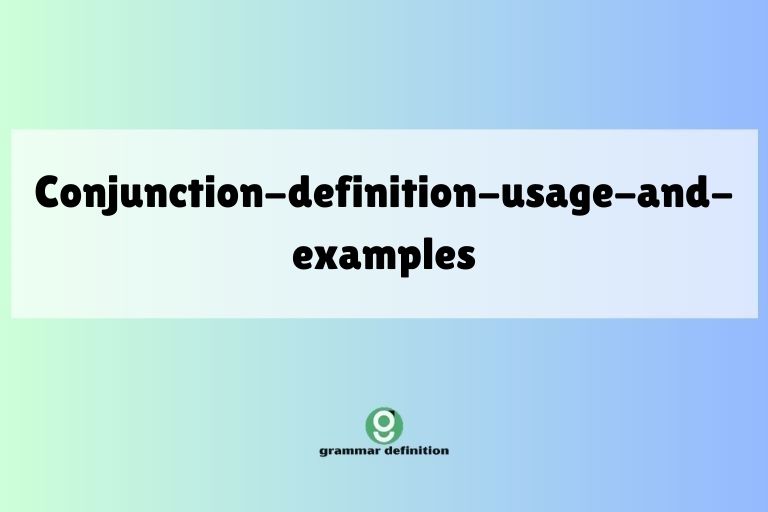Other Ways to Say “Game-Changing”: A Comprehensive Guide

The phrase “game-changing” is ubiquitous, especially in business, technology, and sports. It signifies something revolutionary, something that fundamentally alters the landscape.
However, relying solely on this phrase can make your writing or speech sound repetitive and uninspired. This article provides a comprehensive exploration of alternative expressions that capture the same spirit of transformation and innovation, enhancing your vocabulary and communication skills.
This guide is designed for English language learners, writers, speakers, and anyone looking to add nuance and variety to their language. By mastering these alternatives, you can express your ideas with greater precision and impact, making your communication more engaging and effective.
Table of Contents
- Introduction
- Definition of “Game-Changing”
- Structural Breakdown
- Types and Categories of Alternatives
- Examples
- Usage Rules
- Common Mistakes
- Practice Exercises
- Advanced Topics
- FAQ
- Conclusion
Definition of “Game-Changing”
The term “game-changing” describes something that fundamentally alters the course, strategy, or outcome of a situation, industry, or field. It implies a significant and often unexpected shift that redefines the rules or standards.
Essentially, it denotes a turning point that leads to a new and different state of affairs. The term is versatile and can be applied to various contexts, from technological advancements to strategic business decisions and even personal transformations.
In terms of grammatical classification, “game-changing” is typically used as an adjective. It modifies nouns to describe their transformative quality. For example, “a game-changing technology” or “a game-changing decision.” It can also be used as part of a compound noun, such as “game-changer,” referring to the person, thing, or event that causes the significant shift. The function of “game-changing” is to emphasize the magnitude and impact of the change being described.
Structural Breakdown
The structure of “game-changing” is relatively straightforward. It’s a compound adjective, formed by combining the noun “game” and the present participle “changing.” The word “game” acts as an attributive noun, modifying “changing” and indicating the context of the change.
The hyphen connects the two words, creating a single adjective that can be placed before the noun it modifies.
The word “changing” is derived from the verb “to change,” which means to become different or to make something different. The present participle form “-ing” indicates an ongoing or active process.
Therefore, “game-changing” literally describes something that is in the process of changing the game. The combination of these elements creates a powerful and concise way to convey the idea of a significant transformation.
Types and Categories of Alternatives
There are many ways to express the concept of “game-changing,” each with slightly different nuances and connotations. Understanding these nuances can help you choose the most appropriate alternative for your specific context.
Transformative
“Transformative” emphasizes the profound and fundamental nature of the change. It suggests a complete alteration of form or character.
This word is appropriate when the change leads to a new and significantly different state.
Innovative
“Innovative” highlights the novelty and originality of the change. It suggests that the change is driven by new ideas, methods, or products.
This word is suitable when the change involves creativity and ingenuity.
Revolutionary
“Revolutionary” implies a radical and far-reaching change that overturns existing structures or systems. It suggests a complete departure from the norm.
This word is appropriate when the change is disruptive and transformative on a large scale.
Disruptive
“Disruptive” emphasizes the way the change interrupts the normal course of things. It suggests that the change challenges existing practices and creates new opportunities.
This word is particularly relevant in the context of business and technology.
Groundbreaking
“Groundbreaking” highlights the pioneering nature of the change. It suggests that the change is innovative and sets a new precedent.
This word is suitable when the change is original and paves the way for future developments.
Pivotal
“Pivotal” emphasizes the critical importance of the change. It suggests that the change is a turning point that significantly influences future events.
This word is appropriate when the change has a decisive impact.
Paradigm-Shifting
“Paradigm-shifting” suggests a change that alters the fundamental assumptions or frameworks of a field. It implies a change in the way people think about or understand something.
This word is often used in academic or scientific contexts.
Unprecedented
“Unprecedented” emphasizes the uniqueness and novelty of the change. It suggests that there is no prior example or parallel.
This word is appropriate when the change is truly original and without precedent.
Watershed
“Watershed” implies a turning point or a significant event that marks a new direction. It suggests that the change is a major milestone that separates two distinct periods.
This word is often used in historical or political contexts.
Examples
To illustrate the various alternatives to “game-changing,” here are examples of how each word can be used in different contexts. These examples are categorized to provide a clearer understanding of their specific applications.
Transformative Examples
The following table provides examples of “transformative” used in sentences, demonstrating its capacity to describe profound changes across various domains.
| Sentence | Context |
|---|---|
| The new educational program had a transformative effect on the students’ learning outcomes. | Education |
| Meditation can be a transformative practice for improving mental well-being. | Personal Development |
| The company underwent a transformative restructuring to adapt to the changing market. | Business |
| Her transformative journey from a shy student to a confident leader was inspiring. | Personal Growth |
| The transformative power of art can evoke deep emotions and inspire social change. | Arts |
| Renewable energy sources have the potential to bring about transformative changes in the energy sector. | Environment |
| The transformative impact of technology on communication is undeniable. | Technology |
| The transformative experience of traveling to new countries broadened her perspective. | Travel |
| Implementing agile methodologies brought transformative improvements to the software development process. | Software Development |
| The transformative effects of the new policy were immediately visible in the community. | Policy |
| The transformative curriculum reshaped how students approached problem-solving. | Education |
| His transformative leadership turned the struggling company into a market leader. | Business Leadership |
| The transformative power of forgiveness helped them heal from past traumas. | Psychology |
| The transformative effects of exercise on physical health are well-documented. | Health |
| The transformative influence of mentorship guided her career path. | Mentorship |
| The transformative potential of artificial intelligence is reshaping industries globally. | Artificial Intelligence |
| The transformative nature of sustainable practices is crucial for environmental conservation. | Sustainability |
| The transformative art project engaged the community in a meaningful dialogue. | Community Engagement |
| The transformative impact of the program was evident in the improved academic performance of the students. | Academic Performance |
| The transformative innovation revolutionized the way healthcare services were delivered. | Healthcare |
| The transformative reforms led to significant improvements in the justice system. | Justice System |
| The transformative changes in the political landscape reshaped the nation’s direction. | Politics |
| The transformative effect of the new therapy helped patients overcome chronic pain. | Therapy |
| The transformative power of education opened doors to new opportunities for underprivileged children. | Education |
| The transformative impact of globalization on local economies is a complex issue. | Globalization |
Innovative Examples
The following table showcases “innovative” in action, demonstrating its use in highlighting creative and novel solutions.
| Sentence | Context |
|---|---|
| The company’s innovative approach to marketing attracted a new customer base. | Marketing |
| The innovative design of the building incorporated sustainable materials and energy-efficient features. | Architecture |
| The scientist developed an innovative method for detecting diseases early on. | Science |
| The chef’s innovative use of local ingredients created a unique culinary experience. | Culinary Arts |
| The innovative teaching strategies improved student engagement and performance. | Education |
| The innovative technology revolutionized the way data was processed and analyzed. | Technology |
| The innovative solutions addressed the challenges faced by the community. | Community Solutions |
| The innovative financing model enabled the startup to secure funding. | Finance |
| The innovative strategies significantly boosted the company’s revenue. | Business Strategy |
| The innovative use of technology transformed the learning environment. | Educational Technology |
| The innovative program aimed to support underprivileged students. | Educational Program |
| The innovative design of the app made it user-friendly and intuitive. | App Design |
| The innovative approach to urban planning revitalized the city center. | Urban Planning |
| The innovative marketing campaign went viral and generated significant buzz. | Marketing Campaign |
| The innovative research led to a breakthrough in cancer treatment. | Medical Research |
| The innovative renewable energy project reduced carbon emissions. | Renewable Energy |
| The innovative farming techniques increased crop yields. | Agriculture |
| The innovative business model disrupted the industry. | Business Model |
| The innovative approach to customer service improved satisfaction rates. | Customer Service |
| The innovative software solution streamlined business operations. | Software Solutions |
| The innovative public health initiative reduced disease transmission. | Public Health |
| The innovative transportation system eased traffic congestion. | Transportation |
| The innovative legal strategy won the landmark case. | Legal Strategy |
| The innovative security protocol protected sensitive data. | Data Security |
| The innovative educational tool made learning more accessible. | Educational Tool |
| The innovative design feature improved the product’s functionality. | Product Design |
Revolutionary Examples
The following table presents examples of “revolutionary,” showcasing its use in contexts where change is radical and transformative.
| Sentence | Context |
|---|---|
| The internet has brought about a revolutionary change in the way people communicate. | Communication |
| The revolutionary technology disrupted the traditional manufacturing industry. | Manufacturing |
| The revolutionary ideas challenged the established norms and sparked social reform. | Social Reform |
| The revolutionary medical breakthrough saved countless lives. | Medicine |
| The revolutionary approach to education empowered students to take control of their learning. | Education |
| The revolutionary design transformed the way cities were planned and developed. | Urban Planning |
| The revolutionary movement overthrew the oppressive regime. | Politics |
| The revolutionary new material changed the landscape of construction. | Construction |
| The revolutionary business strategy redefined the company’s market position. | Business |
| The revolutionary artistic style broke away from traditional conventions. | Art |
| The revolutionary farming techniques increased food production. | Agriculture |
| The revolutionary energy source offered a sustainable alternative. | Energy |
| The revolutionary software changed the way businesses operated. | Software |
| The revolutionary government implemented sweeping reforms. | Government |
| The revolutionary invention simplified everyday tasks. | Invention |
| The revolutionary theory reshaped scientific understanding. | Science |
| The revolutionary social media platform connected people globally. | Social Media |
| The revolutionary product changed consumer behavior. | Consumer Behavior |
| The revolutionary approach to healthcare improved patient outcomes. | Healthcare |
| The revolutionary technology enhanced data security. | Data Security |
| The revolutionary design increased efficiency. | Design |
| The revolutionary system reduced operational costs. | Operational Costs |
| The revolutionary method improved productivity. | Productivity |
| The revolutionary tactic changed the course of the war. | Military Strategy |
| The revolutionary philosophy influenced generations. | Philosophy |
Disruptive Examples
The following table illustrates how “disruptive” is used to describe innovations that significantly alter market dynamics.
| Sentence | Context |
|---|---|
| The new online platform was a disruptive force in the retail industry. | Retail |
| The disruptive technology challenged the established business models. | Business |
| The disruptive innovation created new market opportunities. | Market Analysis |
| The disruptive approach to healthcare delivery improved access to care. | Healthcare |
| The disruptive startup quickly gained market share. | Startups |
| The disruptive trend transformed the way consumers interacted with brands. | Marketing |
| The disruptive technology rendered older systems obsolete. | Technology |
| The disruptive business model disrupted the traditional industry. | Business Model |
| The disruptive innovation reshaped the competitive landscape. | Competitive Landscape |
| The disruptive strategy challenged the status quo. | Business Strategy |
| The disruptive force revolutionized the media industry. | Media Industry |
| The disruptive technology improved efficiency. | Efficiency |
| The disruptive approach changed how services were delivered. | Service Delivery |
| The disruptive product transformed the consumer market. | Consumer Market |
| The disruptive trend altered industry norms. | Industry Norms |
| The disruptive innovation created new business opportunities. | Business Opportunities |
| The disruptive strategy maximized market penetration. | Market Penetration |
| The disruptive force changed the dynamics of the sector. | Business Sector |
| The disruptive technology redefined industry standards. | Industry Standards |
| The disruptive approach enhanced customer experience. | Customer Experience |
| The disruptive product simplified complex tasks. | Product Design |
| The disruptive trend shifted consumer preferences. | Consumer Preferences |
| The disruptive innovation opened new avenues for growth. | Business Growth |
| The disruptive strategy optimized resource allocation. | Resource Allocation |
Usage Rules
When using alternatives to “game-changing,” it’s important to consider the specific context and the nuances of each word. Here are some general rules to follow:
- Choose the word that best reflects the nature of the change. If the change is primarily about innovation, “innovative” is a better choice than “transformative.”
- Consider the scale of the change. “Revolutionary” implies a larger and more widespread change than “pivotal.”
- Avoid overuse. Even the best alternatives can become repetitive if used too frequently. Vary your language to keep your writing or speech engaging.
- Ensure grammatical correctness. Use the words as adjectives, correctly modifying the nouns they describe.
Exception: Some of these words can also be used as nouns (e.g., “a revolutionary”), but this is less common and requires careful consideration of the context.
Common Mistakes
Here are some common mistakes to avoid when using alternatives to “game-changing”:
- Incorrect Word Choice: Using a word that doesn’t accurately reflect the nature of the change.
- Incorrect: The new software was a revolutionary improvement, making minor adjustments to the user interface. (Pivotal or innovative would be more appropriate.)
- Correct: The new software was a pivotal improvement, making key adjustments to the user interface.
- Overuse of a Single Alternative: Relying too heavily on one particular word, leading to repetition.
- Incorrect: The innovative product, the innovative strategy, the innovative marketing campaign… (Too repetitive.)
- Correct: The innovative product, the groundbreaking strategy, the disruptive marketing campaign… (More varied and engaging.)
- Incorrect Grammatical Usage: Misusing the words as verbs or adverbs when they should be adjectives.
- Incorrect: The company revolutionarily changed its approach. (Should be “revolutionary change” or “revolutionized its approach”)
- Correct: The company implemented a revolutionary change in its approach.
Practice Exercises
Test your understanding of the alternatives to “game-changing” with these practice exercises.
Exercise 1: Sentence Completion
Complete the following sentences with the most appropriate alternative to “game-changing” from the list provided (transformative, innovative, revolutionary, disruptive, groundbreaking, pivotal, paradigm-shifting, unprecedented, watershed).
| Question | Answer |
|---|---|
| 1. The discovery of penicillin was a ______ moment in the history of medicine. | pivotal |
| 2. The rise of social media has had a ______ impact on communication and social interaction. | transformative |
| 3. The company’s ______ technology disrupted the market and forced competitors to adapt. | disruptive |
| 4. The invention of the printing press was a ______ event that changed the course of history. | revolutionary |
| 5. The scientist’s ______ research opened up new avenues for understanding the universe. | groundbreaking |
| 6. The company’s ______ approach to customer service set a new standard in the industry. | innovative |
| 7. The ______ changes in the political landscape led to a new era of international relations. | unprecedented |
| 8. The introduction of the Euro was a ______ moment for European integration. | watershed |
| 9. Quantum physics presented a ______ perspective on the nature of reality. | paradigm-shifting |
| 10. The ______ policy reform brought about sweeping changes in the education system. | transformative |
Exercise 2: Synonym Replacement
Replace the phrase “game-changing” in the following sentences with a suitable alternative.
| Question | Answer |
|---|---|
| 1. The new marketing strategy was a game-changing move for the company. | The new marketing strategy was a pivotal move for the company. |
| 2. The invention of the smartphone was a game-changing development in the field of communication. | The invention of the smartphone was a revolutionary development in the field of communication. |
| 3. The company’s game-changing technology disrupted the market. | The company’s disruptive technology disrupted the market. |
| 4. The new approach to education was a game-changing innovation. | The new approach to education was a transformative innovation. |
| 5. The scientist’s discovery was a game-changing breakthrough. | The scientist’s discovery was a groundbreaking breakthrough. |
| 6. The new law was a game-changing moment for environmental protection. | The new law was a watershed moment for environmental protection. |
| 7. The company’s game-changing product revolutionized the industry. | The company’s innovative product revolutionized the industry. |
| 8. The new regulations represented a game-changing shift in policy. | The new regulations represented an unprecedented shift in policy. |
| 9. The discovery challenged the existing theories and was a game-changing event for the scientific community. | The discovery challenged the existing theories and was a paradigm-shifting event for the scientific community. |
| 10. The new initiative had a game-changing effect on community development. | The new initiative had a transformative effect on community development. |
Advanced Topics
For advanced learners, exploring the etymology and historical context of these words can provide a deeper understanding of their nuances. For example, “revolutionary” is derived from the concept of a political revolution, while “watershed” comes from the geographical term for a dividing ridge between drainage areas.
Understanding these origins can enhance your ability to use these words with precision and impact.
Additionally, consider the cultural context in which these words are used. Some words may have different connotations in different cultures or industries.
For example, “disruptive” is often used positively in the tech industry, but it may have negative connotations in more traditional sectors. Being aware of these cultural nuances can help you communicate effectively and avoid misunderstandings.
FAQ
Here are some frequently asked questions about alternatives to “game-changing”:
- What is the best alternative to “game-changing”?
There is no single “best” alternative. The most appropriate word depends on the specific context and the nuance you want to convey. Consider the nature, scale, and impact of the change when making your choice.
- Can I use multiple alternatives in the same piece of writing?
Yes, using a variety of alternatives can make your writing more engaging and prevent repetition. However, be sure to choose words that are appropriate for the context and avoid using too many synonyms in a short space.
- Are there any alternatives that should be avoided?
Avoid using alternatives that are too vague or generic, such as “significant” or “important.” Choose words that are specific and descriptive of the change you are describing. Also, be cautious of using overly dramatic or hyperbolic language, as this can undermine your credibility.
- How can I improve my vocabulary of alternatives?
Read widely and pay attention to the language used in different contexts. Use a thesaurus to explore synonyms and related words. Practice using the alternatives in your own writing and speaking.
- Are there any regional differences in the usage of these alternatives?
While the core meanings of these words are generally consistent across different regions, there may be subtle differences in connotation or frequency of use. Pay attention to the language used by native speakers in your region to get a better sense of local usage.
- How do I know if I am using an alternative correctly?
Check the definition of the word in a dictionary or online. Look for examples of how the word is used in context. Ask a native speaker or language expert for feedback.
- What’s the difference between “disruptive” and “revolutionary”?
“Disruptive” usually refers to innovations that upset existing market structures, often in business or technology. “Revolutionary” implies a more radical, fundamental change that can affect society, politics, or science.
- Is “paradigm-shifting” overused?
Yes, “paradigm-shifting” can be seen as jargon if used too frequently. Reserve it for describing changes that genuinely alter fundamental assumptions or frameworks in a field.
Conclusion
Mastering alternatives to “game-changing” is a valuable skill for anyone looking to enhance their communication. By understanding the nuances of words like “transformative,” “innovative,” “revolutionary,” and “disruptive,” you can express your ideas with greater precision and impact.
Remember to consider the context, scale, and nature of the change when choosing the most appropriate alternative. Avoid overuse and ensure grammatical correctness.
With practice and attention to detail, you can elevate your language skills and become a more effective communicator. Continuously expand your vocabulary and stay attuned to the evolving nuances of English to maintain a dynamic and engaging communication style.






